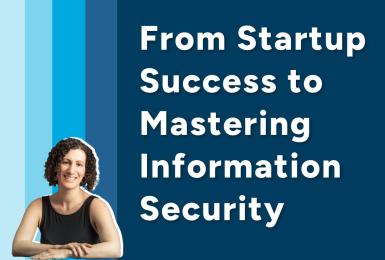Learn more about what you can expect from your online experience at Champlain.
Until fairly recently, the value of college education was unquestioned - although tuition was a cost that needed to be considered, the ultimate benefit of obtaining a bachelor's degree was clear.
However, in recent years, there's been more and more discussion of whether college is, truly, worth the cost.
Quick Answer: Is College Worth It?
Yes, for most people, a college degree pays off through higher lifetime earnings, lower unemployment rates, and greater career opportunities. While tuition and related costs can be significant, financial aid, choice of school, and career planning can improve your return on investment.
How to Calculate the Cost of College
Before deciding if college is worth it, you need to understand the total cost. This amount can vary greatly depending on several factors, including:
The Type of Institution
All institutions of higher learning fall into one of two categories: public and private. Public colleges are state-funded, and often cost much less than private institutions, which rely on tuition dollars and private contributions for their operations.
Private institutions can further be broken down into two buckets: non-profit and for-profit. The vast majority of private colleges are non-profit, meaning revenue generated is used to ensure a high-quality, positive student experience. For-profit institutions, on the other hand, are run like businesses, with the goal of creating profits for shareholders and executives.
The Financial Aid Accessible to You
While college tuition may seem overwhelming, financial aid can help make college more affordable. Colleges may reduce costs through institutional scholarships and grants, which can be either funded or unfunded discounts. To cover the remaining balance, many students rely on financial aid in the form of federal student loans, private loans, employer tuition assistance, or outside scholarships and grants. The amounts of these will depend on your financial eligibility, which is determined by completing the FAFSA (Free Application for Federal Student Aid). It’s important to note that loans don’t reduce tuition — they help you pay for it, and because they must be repaid with interest, they can increase the total cost over time.
The Education Delivery Method
The way you are obtaining your education can play a large role in the overall cost of your college experience. Almost always, you'll be looking at one of two methods of education delivery: face-to-face learning and online learning.
Face-to-face education is what many people think of when they hear the term "college education." This is the traditional on-campus experience, with classes being held in physical classrooms with a group of classmates and a professor lecturing or leading discussion. Online education takes the same principles of hands-on teaching and immersive classroom experiences and applies them to a virtual format, usually through discussion boards and text- or video-based assignments. While both are great options that deliver the same high-quality education, typically, online education will be cheaper, simply because there are fewer overhead costs to contend with. For instance, an institution with a physical campus must account for the cost of maintaining grounds and powering buildings, which can drive up the costs of tuition.
The Hidden Costs
A common mistake many students make is assuming that the cost of tuition displayed on a school's website is the amount that they will owe. However, it's not as simple as that. While tuition certainly makes up the bulk of the amount students must pay, it's important to consider the less obvious costs of a college education as well, because they can add up quickly. These include:
- Transportation (if you're commuting to and from campus)
- Costs of living (including lodging and meals)
- Lost wages (if you're choosing to pull back from or leave your job while you pursue your degree)
- Books and materials (these can include textbooks, laptops, and more)
- Fees (institutions will sometimes charge additional fees for enrollment, application, access, and/or graduation)
Not all of these costs will apply to every student, and, increasingly, institutions are working to drive these additional costs down as much as possible.
However, it's worth doing some research and some calculations to determine how much you'll be required to pay on top of your tuition bill.
Is College Worth It? The Key Benefits
It's a valid question - but in short, the answer is yes. You might look at the list above and think that there's no way that spending all of that money on a college education will be worth it. However, while the cost of college is admittedly high, there is still enormous benefit to obtaining a degree. Here are the top reasons why college is worth it.
Increased Earning Potential for College Graduates
Workers with a bachelor’s degree continue to earn substantially more than those with only a high school diploma. In 2024, the median usual weekly earnings for full-time workers age 25+ with a bachelor’s degree were $1,543, versus $930 for high school graduates — about 66 percent higher pay for bachelor’s degree holders. Earnings rise further with advanced study (master’s: $1,840; professional: $2,363).
Looking across an entire career, Social Security Administration research estimates that median lifetime earnings are hundreds of thousands of dollars higher for college graduates. One widely cited SSA summary finds men with a bachelor’s degree earn about $900,000 more in gross lifetime earnings than high school graduates (about $655,000 more after controls). For women, the gross difference is $630,000 (about $450,000 after controls).
Recent research also shows that the college earnings premium grows with experience because college enables access to professional roles with greater on-the-job learning and wage growth.
Lower Risk of Unemployment
Education is also linked to lower unemployment. In 2024, the unemployment rate for workers 25+ with a bachelor’s degree averaged 2.5 percent, compared with 4.2 percent for high school graduates and 6.2 percent for those without a diploma. Graduate-degree holders had unemployment near 1.2–1.3 percent.
Increased Job Prospects
Today's employers are looking for highly-skilled, well-trained employees, and having a degree is one of the best ways to demonstrate that you possess the capabilities needed for success in today's business world. And, increasingly, a college degree is a barrier for entry to many businesses. A recent study found that employers are, across the board, raising the educational requirements for many positions. In fact, 38% of organizations have raised the educational requirements for hiring over the last five years, and 41% of employers are hiring individuals with college degrees for positions that used to be held primarily by those with high school diplomas.
Career Satisfaction
Another big advantage of obtaining a college degree is that it allows you to pursue a career that truly interests you, whether it's advancing in your current field or changing professions entirely. A degree program in your preferred subject area will give you the skills and training needed to move into a new role, and will open up a new world of opportunity to you. If you find yourself in an unstimulating job, or wish you could fulfill a long-held career dream, getting a college education is one of the best ways to change your circumstances.
Making an Investment in Your Future
Perhaps more than any other reason, the fact that by getting a degree you will be making an investment in your future makes the cost of college worth it. It can be difficult to look beyond where you are right now to make decisions that will benefit your future self, but when you really consider the benefits of a degree, the value of college education becomes evident. Despite the significant financial commitment you're making when you enroll in a degree program - not to mention other challenges, such as the time, energy, and work required to reach completion - the payoff is more than worth it in the end. When you receive your diploma, you'll be greeted by not just the tangible benefits in terms of career and income, but a sense of having done the right thing to secure your future success as well.
Ready to See Your ROI? Explore Flexible Programs Built for Working Adults
Investing in your education is one of the most reliable ways to increase your earning potential and create more security for your future. But it does not have to mean putting your life on hold. Champlain College Online (CCO) designs programs with working adults in mind — so you can balance coursework with your job, family, and personal goals.
With CCO, you’ll find:
- Career-focused degrees that connect directly to today’s in-demand fields.
- 100% online learning that gives you the flexibility to study anytime, anywhere.
- Support every step of the way, from admissions advisors to dedicated faculty and career coaching.
- Credit transfer options to help you save time and money.
The return on investment is not just financial. It is about gaining confidence, skills, and opportunities that open doors throughout your career. Explore all of CCO’s online degrees and certificates, or request more information today.
FAQs About the ROI of College
In 2024, median weekly earnings for bachelor’s degree holders were $1,543 vs. $930 for high school graduates — about a 66 percent earnings edge. Over a lifetime, SSA research estimates $450k–$900k higher median lifetime earnings for bachelor’s degree holders (after various controls, ~$180k–$655k).
ROI varies by major and occupation, degree level, time to completion, tuition and fees (net price after aid), and labor-market conditions where you live and work. Degrees that open doors to professional roles often see faster wage growth over a career due to more on-the-job learning. Minimizing borrowing and finishing on time also improves ROI.
Ways to bring down the net price include:
- Complete the FAFSA and use federal, state, and institutional aid (grants, scholarships, work-study).
- Employer tuition assistance (many employers offer up to $5,250/year tax-free for qualifying education; check your HR benefits).
- Education tax credits, such as the Lifetime Learning Credit (up to $2,000 per return, subject to income limits).
- Transfer previously earned credits (including prior learning assessments where available) to shorten time-to-degree and reduce tuition paid. (Policies vary by institution; CCO advisors can help you evaluate transfer credit.)
For many students, yes — especially working adults. Online programs can reduce indirect costs (commuting, parking, and some campus fees) and increase flexibility, helping you keep working while you study, both of which improve ROI. The format is now mainstream: recent national data show a majority of students take at least one online course, and a substantial share study exclusively online. (Quality still varies, so choose accredited programs with strong student support.)
Download Online Experience Guide
Learn what you can expect from your experience at Champlain College Online.

Online Experience Guide Download
I acknowledge that, by clicking the "submit" button, I am giving my express written consent to Champlain College and its representatives to contact me about educational opportunities via email, text, or phone, at the phone number above, including my mobile phone, using an automatic dialer, or pre-recorded message. Message and data rates may apply. I understand that my consent is not a requirement for enrollment, and I may withdraw my consent at any time.






